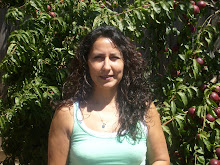As a cancer survivor I'm very interested in sharing my experience with only one intention, to make you think and take a test today and not tomorrow, because it could be to late. You have to love yourself and look after you health.
This saved my life as I have shared with you in my post "My women intuition saved my life Part I and part II. Most of men think this Blog is a women issue only, and I complete disagreed. All men either have a mum, a sister, or a daughter, a wife, or simply a woman that they care about.
After I recovered from my Breast Cancer, I began my research on how to prevent the cancer from coming back and protect my family from this disease.
I found out how important the food that we eat is in helping prevent cancer.That is why I wrote a Post about Raw Food, Berries, carrots and their properties. We have nothing to loose if we try to change the way we eat and put more attention in vegetables and fruits.
Today I found an interesting article, that I will now share with you... my friends...
EAT LESS RED MEAT AND LIVE LONGER:
A new study has found that people who eat large amounts of red and processed meat die younger.
The research, founded by the US Government, is the larges study of its kind ever conducted. It examined the diet and lifestyle of more than half a million people over a 10 years period, and found that the people who ate the most red and processed meat, including pork, had 30 per cent increase risk of death compared to people who ate the least.
The researches suggested that the increase in risk of death among red and processed meat eaters may have something to do with the types of iron in meat, the type of fat or the cooking and processing methods.
Taking in to account other risk factors, like smoking, family history of cancer and weight, researchers believe that around one in ten deaths could be prevented if people simply ate less red meat.
This latest study adds to a growing body of evidence that diets high in red meat contribute to disease. In contrast, diets based predominantly on nature's whole plants foods, including fruits, vegetables, wholegrain, nuts, seeds and legumes, have been shown to reduce disease risk and extend both, Length and quality of life.
AVOID PROCESSED MEAT:
This is only one of many studies showing that people who eat processed meat like sausages, salami and bacon, have the highest risk of developing cancer, so it's a good idea to avoid them. Try replacing them with more salad, legumes and vegies.
EAT LESS RED MEAT:
If you do eat meat, try to eat less. One way is to increase the vegetables and legumes in your pasta sauces or try vegetables fritters instead of hamburgers. Another idea is to start with one meat-free day each week and increase the number as you get comfortable with cooking different meals.
EAT MORE PLANT FOOD:
By focusing more on fruits, vegetables, wholegrain, nuts, seed and legumes, you feel better, and according to the research, you are likely to live longer as well.
TIPS:
-Consider reducing the amount of meat eaten.
The World Cancer Research Fund, suggest limiting intake to less than 80gr, per day, which is equivalent to the size of a deck of cards.
(Sanitarium Nutritionist
Cathy McDonals
Body and Soul 2009)




